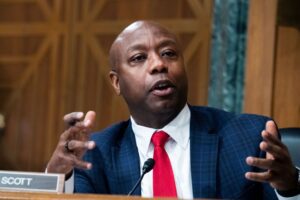The economic crisis caused by the coronavirus pandemic poses a triple challenge for tax policy in the United States. Lawmakers are tasked with crafting a policy response that will accelerate the economic recovery, reduce the mounting deficit, and protect the most vulnerable.
To assist lawmakers in navigating the challenge, and to help the American public understand the tax changes being proposed, the Tax Foundation’s Center for Federal Tax Policy modeled how 70 potential changes to the tax code would affect the U.S. economy, distribution of the tax burden, and federal revenue.
In tax policy there is an ever-present trade-off among how much revenue a tax will raise, who bears the burden of a tax, and what impact a tax will have on economic growth. Armed with the information in our new book, Options for Reforming America’s Tax Code 2.0, policymakers can debate the relative merits and trade-offs of each option to improve the tax code in a post-pandemic world.

Are Local Income Taxes Compatible with State Tax Reform? Insights from Indiana
When it comes to comprehensive tax reform, poorly designed local tax policies can offset any improvements brought about by state tax policies.
6 min read
Why Moore v. U.S. Won’t Get Us a Consumption Tax Base
At first glance, a ruling for the plaintiffs in Moore might seem to solve some of the timing problems with the U.S. tax system. Unfortunately, upon greater inspection, such a ruling might create new timing problems. And the more rigid the ruling, the harder it would be to fix the timing problems it would create.
5 min read
Parts of the TCJA Are Expiring Soon—Here’s What That Means for You
Unless Congress acts, Americans are in for a tax hike in 2026.
3 min read
Tax Extenders in 2023: Three Major Business Provisions and an Expanded Child Credit?
In Congress, both parties have expressed widespread support for improving the treatment of R&D and potentially extending some or all of the major business provisions, while the White House and congressional Democrats have indicated interest in an expanded child tax credit, suggesting potential for a deal.
6 min read
Tim Scott Suspends 2024 Campaign but the Need for His Cost Recovery Tax Policies Remains
While not perfect, Senator Scott provided a more detailed and sound tax plan than other 2024 candidates, and he prioritized pro-growth tax reforms like full cost recovery.
4 min read
Full Expensing to Be Made Permanent in the United Kingdom
The policy will likely raise GDP by 0.9 percent, investment by 1.5 percent, and wages by 0.8 percent, relative to a return to the pre-2021 law.
4 min read
What’s Next for Tax Competition?
The rules of tax competition are changing with the recent agreement on a global minimum tax and other changes to tax rules around the world, but that does not mean the contest is over.
5 min read
Assessing the EU Tax Observatory’s View on Profit Shifting and the Global Minimum Tax
The EU Tax Observatory has taken an extreme view in assessing the global minimum tax. The rules were not meant to immediately reduce the stock of shifted profits or align profitability levels more closely with employment costs. The rules do change incentives for multinationals, but profits may continue to remain in low-tax jurisdictions for many years.
6 min read
Is EU VAT Compliance Actually Improving?
While the European Commission focuses on improving VAT compliance, policy is a major contributor to VAT revenue losses. The VAT actionable policy gap is 15.65 percent, more than triple the compliance gap.
5 min read
Dwindling Savings and Increasing Financial Stress Highlights Need for Tax Reforms
The uncertain future of American finances in a time of potential economic instability points to the need for tax reforms that encourage individuals to save and build financial security in a relatively simple way, such as through universal savings accounts.
6 min read